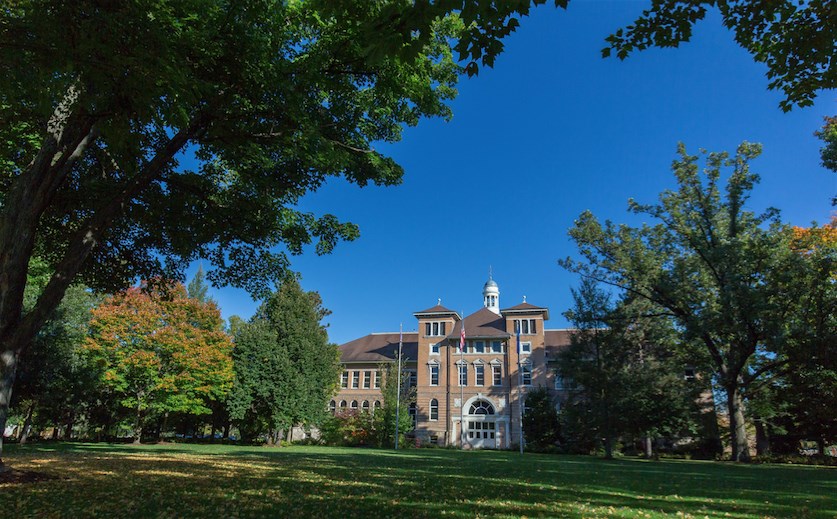The Sad Decline of UW-Stevens Point
Its elimination of liberal arts courses made the New York Times, hurts state’s education and democracy,
It is not every day that the front page of The New York Times has a byline from Stevens Point, Wisconsin. This weekend, however, the Sunday edition published, below the fold, a story on the diminishing role UW-Stevens Point is playing with liberal arts degrees.
I read the story with interest having grown up roughly 40 miles from the campus, and mindful that many of my peers attended the college as it was close to home, allowed for a wider view of the world than offered in their rural towns, and was affordable. As I read the many column inches in the news article, however, I grew more sad.
To remain financially viable the university made a move which created state headlines. History, French and German will be eliminated as liberal arts programs and replaced with an emphasis on classes to allow for profit-making careers. On an equally painful note, the story also reported, tenured faculty members could lose their jobs as a result.
What is troubling about this story is that the decades-long rants against higher education are coming home to roost. And as a result we, as a nation, are losing far more than we are gaining.
For too long we have heard that professors at places of higher education are ‘egg-heads’, liberals, and that degrees only allow for a new generation of elitists. We have heard too many times from conservatives the word ‘indoctrination’ when speaking of colleges and universities. If not that term then the other diatribe to be used against those who teach and learn is ‘political correctness’.
I am concerned without the teaching of the humanities at places like Stevens Point the mindset of high school graduates will not be advanced beyond whether, or not, something is a moneymaking skill. To dismiss the diverse world from the curriculum at small universities, is to limit the deeper understanding which a more globally connected world demands.
With the constant derision about higher education comes the ease for Republicans to undervalue, and at times dismiss, the role colleges and universities play in our nation. The continued use of such rhetoric makes it easier for budget cuts, which are unwarranted and hurtful to the campuses. According to the Time’s story that is painfully obvious in relation to UW-Stevens Point.
The state, which had provided half the university’s budget in the 1970s, was now covering only 17 percent of it.
Those cuts, along with the lack of a strong counter-argument more in tune with the longer-term needs of our state and country, has produced holes in higher education. It is not only students who suffer, but also the very structures and foundations of our republic. Without a truly educated citizenry the nation can not remain stable.
Recall from your own history classes that ancient Greeks considered it a bedrock belief that a full understanding and appreciation of the humanities was the threshold for self-government. Then, like now, there is a requirement to know certain things in order to perform one’s civic duties. The humanities are the key to developing the capacity of a free people to govern themselves. When a republic has lost that essential ingredient there is only direction it can head.
One of the deep concerns I have specific to UW-Stevens Point is the decision to remove history from the list of possible majors. I have stressed repeatedly on this blog why history matters in the large context, and especially to college students. Students need a liberal arts foundation, not to be successful, but rather to be informed citizens. That point can not be over-stressed.
Prior to college it would be a small percentage of high school graduates who could prove they had the essentials of a liberal education so to ponder and dig down with success into problem solving. But with such an education those graduates can be taught how to research primary sources, how to sort fact from opinion, how to collate and assemble information, how to focus, how to distill information, how to collaborate with other researchers, and how to write effectively.
In essence, teaching students how to think.
We want students to have higher education in the humanities so to learn how to think more critically and then live life with purpose. We need them to be better citizens. We need them to know they are a part of a global world of ideas and contrasting perspectives. But if all we achieve from higher education is a better way to earn a living will mean we have not only cheated them, but also our country.
Gregory Humphrey writes for the Caffeinated Politics blog.
Op-Ed
-
Wisconsin Candidates Decry Money in Politics, Plan to Raise Tons of It
 Dec 15th, 2025 by Ruth Conniff
Dec 15th, 2025 by Ruth Conniff
-
Trump Left Contraceptives to Rot; Women Pay the Price
 Dec 8th, 2025 by Dr. Shefaali Sharma
Dec 8th, 2025 by Dr. Shefaali Sharma
-
Why the Common Council’s Amended Budget is Good Policy for Milwaukee
 Nov 20th, 2025 by Alds. Marina Dimitrijevic and Russell W. Stamper, II
Nov 20th, 2025 by Alds. Marina Dimitrijevic and Russell W. Stamper, II





















